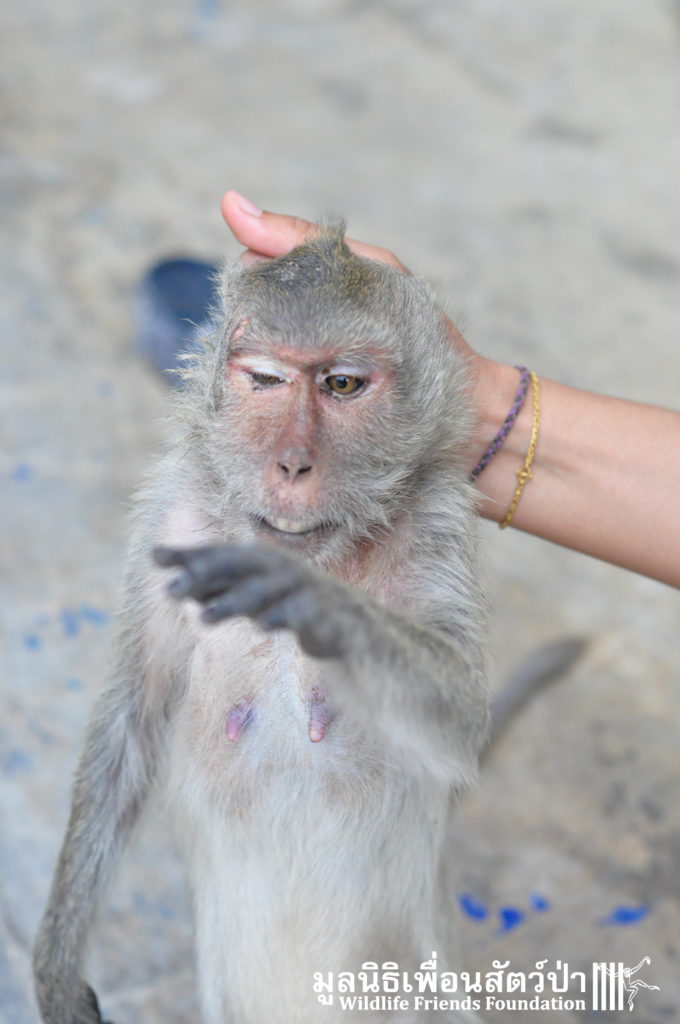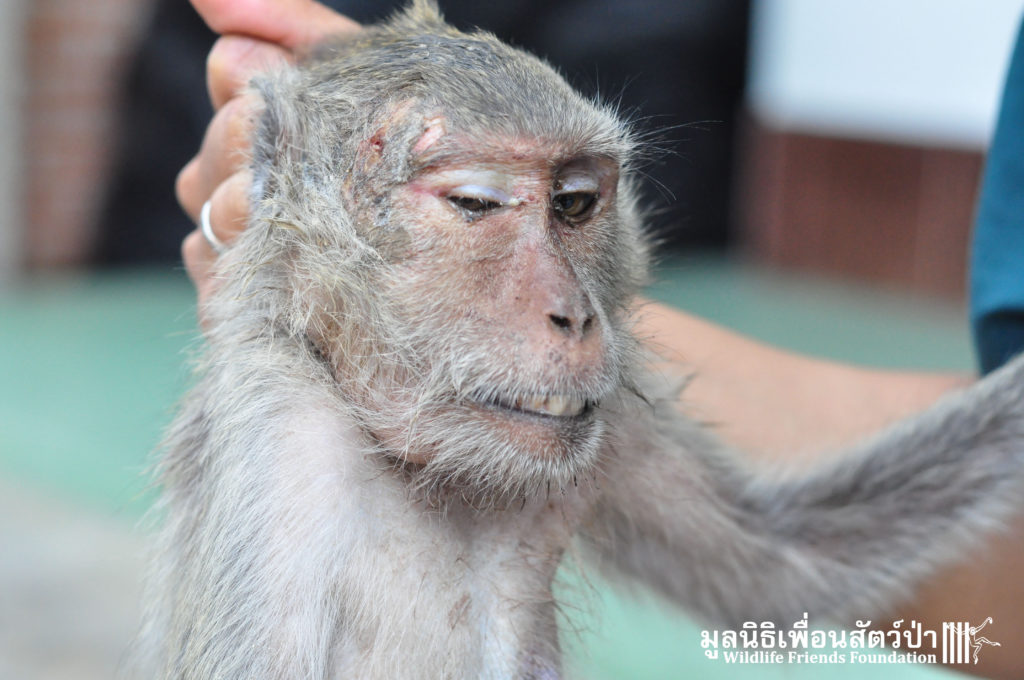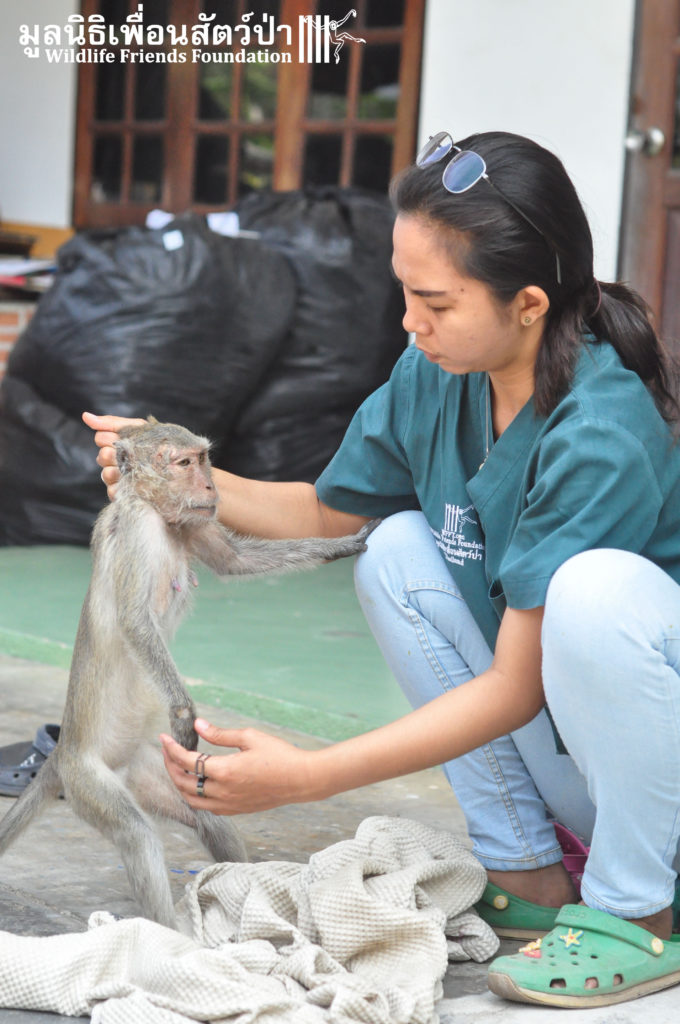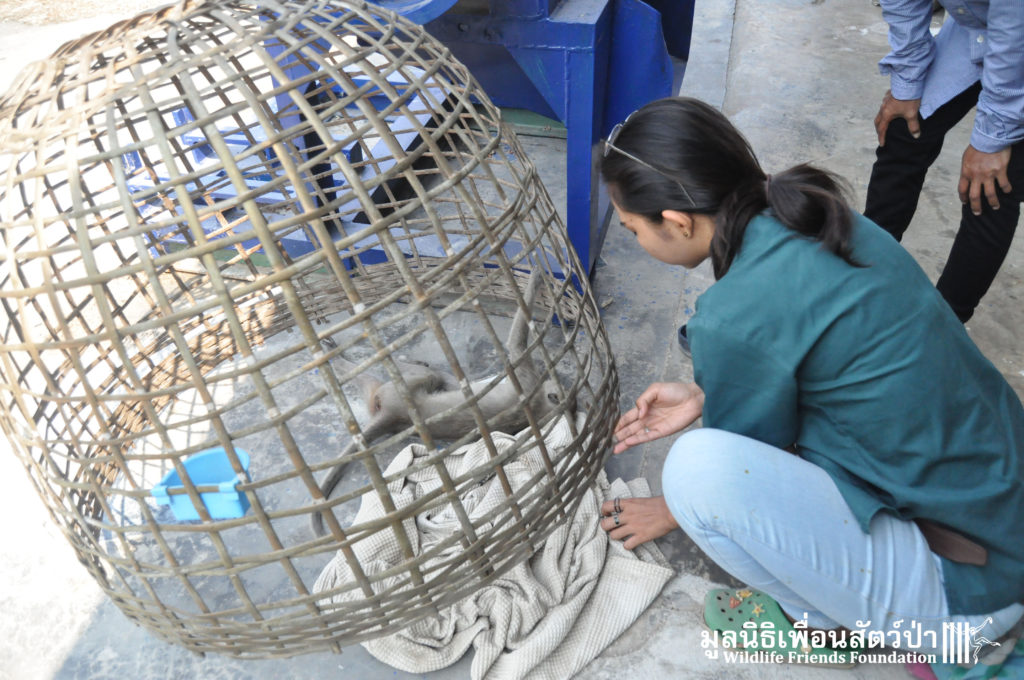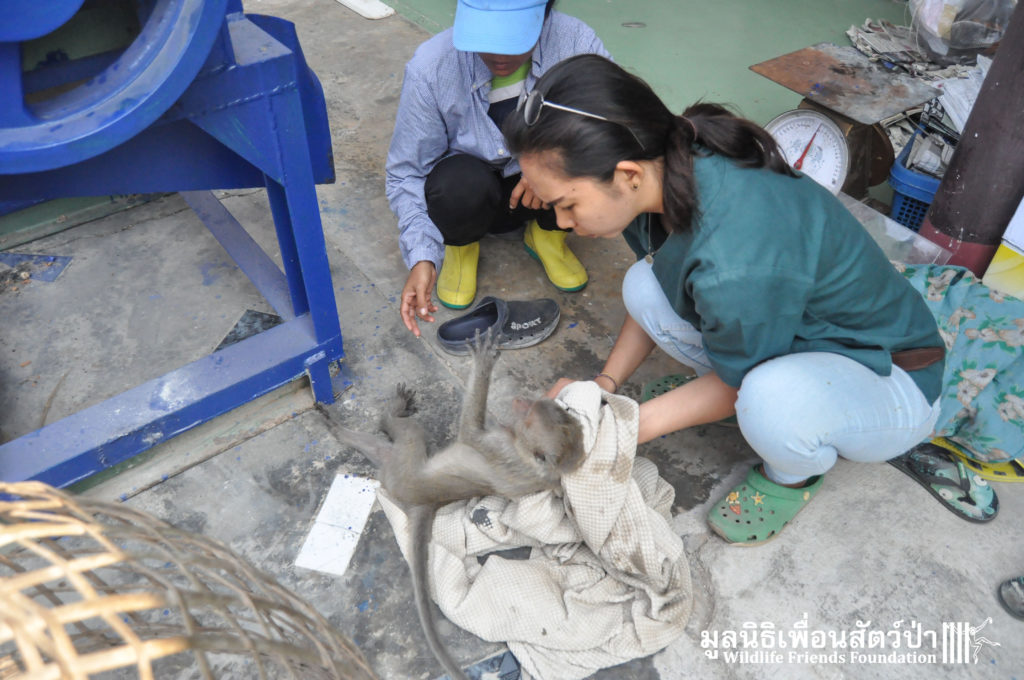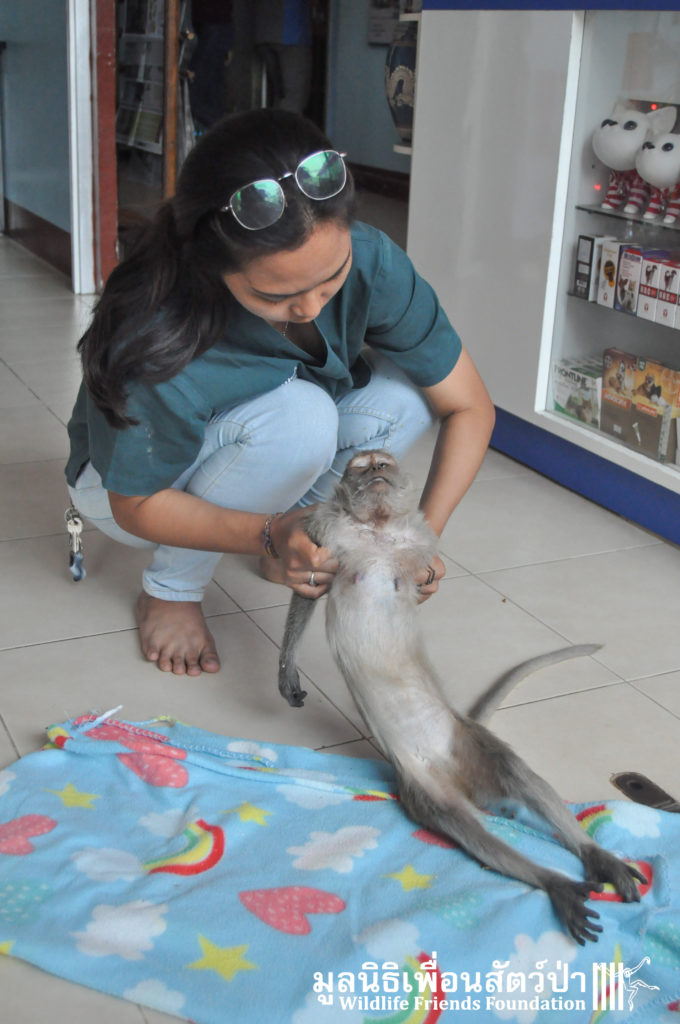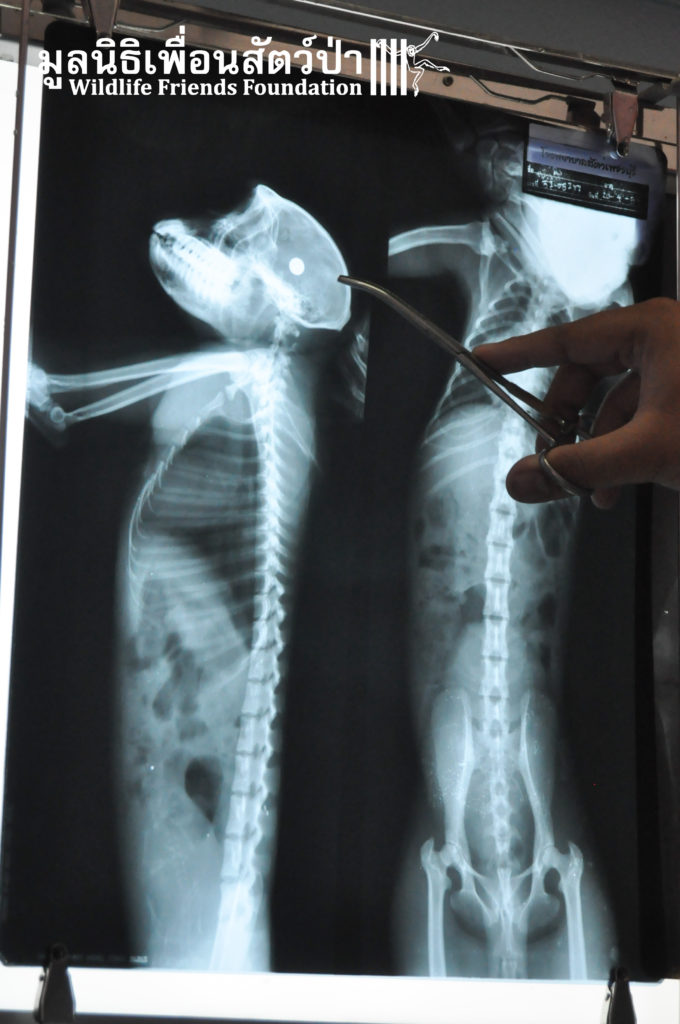A big step forward! An MOU has been signed with the coconut industry and authorities to phase out monkey labour and exploitation in coconut harvesting.
Another Special Soul is Lost
Yesterday we received a call from a concerned local man about a long-tailed macaque (Macaca fascicularis) that had been found by the side a busy road within a highly populated industrial area in Cha-am close to the WFFT Wildlife Rescue Centre. The compassionate local that found her thought she had been attacked by a pack of feral dogs. The WFFT Rescue Team set out immediately to help this poor soul, after the initial health check, the vet team found a puncture wound on the right side of her head, and it seemed that she had some kind of nervous damage to the right side of her body. She was rushed directly to an animal hospital nearby so an x-ray could be performed. After examining the results of the x-ray it was found that a bullet was lodged in her head, not only this, we found that she was carrying an unborn infant. This is a bleak reminder of the challenges faced by our team and Thailand’s urban macaques, those wild macaques that live in close proximity to human settlements.
The long-tailed macaque is listed as Least Concern (LC) by the IUCN Red list of Threatened Species, in view of its wide distribution, presumed large population, tolerance of a broad range of habitats, occurrence in a number of protected areas. Females are often taken into breeding facilities and males are exported internationally primarily for use in laboratory research. Habitat loss and degradation due to human encroachment, pose the biggest threat to all macaque species. They are regularly persecuted as pests. Increasing competition between macaques and humans due the increase in need of land for agriculture and other human activities is the foremost reason that macaques are persecuted as pests.
Hostile encounters with macaques are common in urban areas due to the active promotion of their presence for spiritual and entertainment purposes by provisioning food for the macaques. We (humans) both promote population growth through the provision of food and the protection habitat, and on the other hand we hinder it through the continued fragmentation of habitat, capture and exportation for research, and the pet-trade.
Sadly, the brain damage caused by the soulless person who shot this monkey in the head was to much for her to overcome. Along with her unborn baby, she is no longer with us, she is now at peace and will never again have to overcome the challenges of surviving in this heavily overpopulated world.
As the human population continues to grow exponentially the wild habitats of the species of the earth decrease, they die or they adapt. Ultimately we as humans must adapt to be able to co-exist with the other inhabitants of this world.
We at WFFT try, we help, we succeed and in some instances we do not suceed, however we will continue in any way possible to try and help animals in need.

